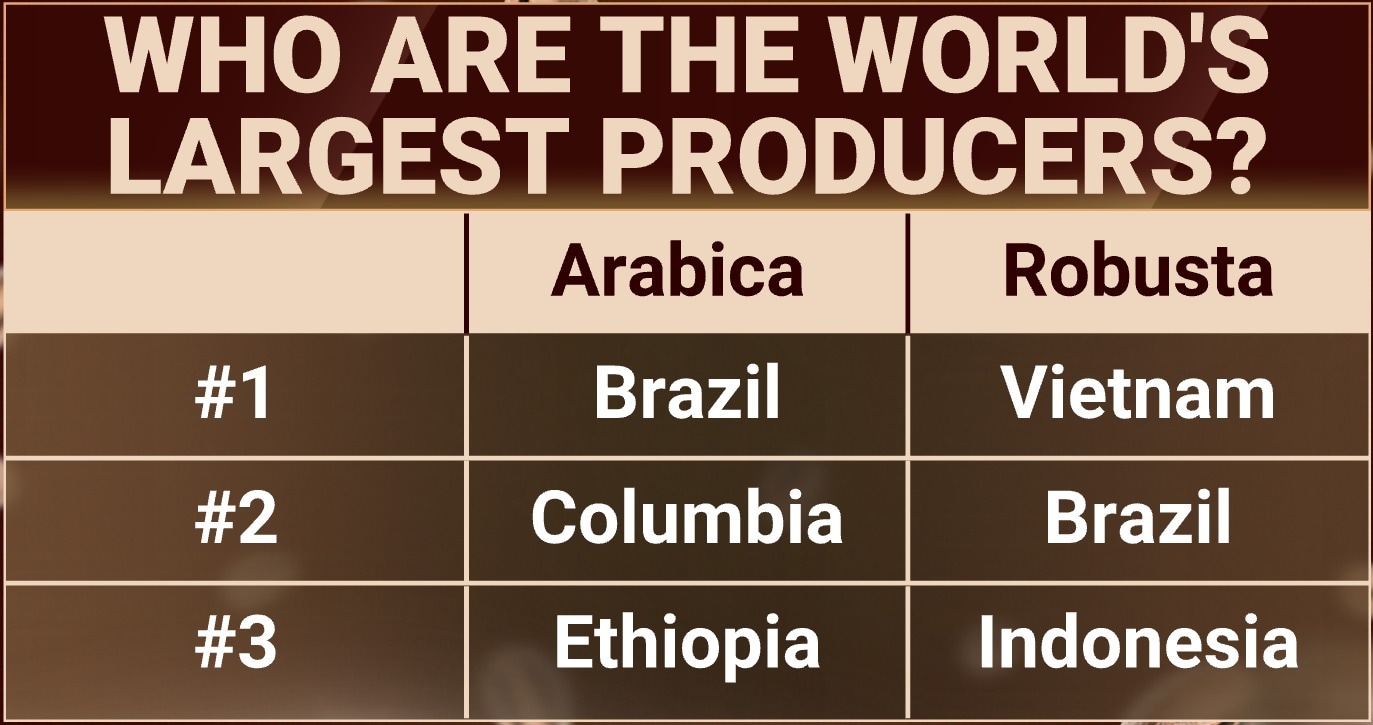
Your morning cup of coffee might finally come with a lighter price tag. Coffee prices are tumbling globally, with benchmark Arabica and Robusta varieties touching multi-month lows on the back of higher output and favourable weather in top producing nations.
According to data reviewed by NDTV Profit, Arabica futures have dropped over 21% in the last seven weeks, while Robusta, a key component in instant coffee blends has crashed nearly 24.4% during the same period. Arabica is now trading near a five-month low, and Robusta near its lowest point in over a year.
Which means your morning cup is definitely getting cheaper.
But while lower prices may support bottom lines, the big question is whether consumer-facing companies will pass on the benefit. So far, there has been no major hike in retail coffee prices despite previous inflationary pressures—meaning any reduction now may be modest or delayed.
What's Bumping Production?

Brazil and Vietnam, the world's largest producers of Arabica and Robusta respectively, are expected to harvest larger crops this year. Brazilian consultancy Safras & Mercado recently hiked its fiscal 2026 production estimate for Arabica to 40 million bags, up 4.3% from the previous projection. Robusta output is now seen rising 7.8% to nearly 26 million bags.
This surge in supply has outpaced demand, putting sharp downward pressure on prices. Improved weather has played a key role in reversing the drought-hit trends of last year, especially in Brazil.
Trouble Ahead?
But while prices are softening now, the outlook is not without risks. The European Union's new deforestation regulation, which mandates traceability of agricultural imports like coffee, could raise compliance costs for producers and, by extension, global supply chains. Fortunately, its implementation has been deferred until at least December 2025.
Other potential disruptors include sudden weather changes in Brazil and Vietnam, shipping container shortages, and political instability in producing regions.
Despite these risks, the current slump in global coffee prices is seen as a potential input cost tailwind for companies like Tata Consumer Products Ltd., CCL Products Ltd., Nestle India Ltd., Bombay Burmah Trading Corp., and Vintage Coffee.
In its recent earnings call, CCL Products signalled expectations of stronger margins and volume recovery if the coffee crop continues to normalise. Tata Consumer Products, which had flagged high input cost inflation as a drag on margins in the March quarter, could also benefit from the easing trend.
Essential Business Intelligence, Continuous LIVE TV, Sharp Market Insights, Practical Personal Finance Advice and Latest Stories — On NDTV Profit.




















